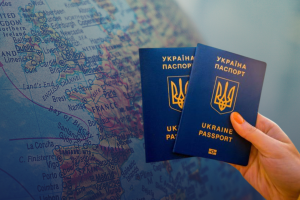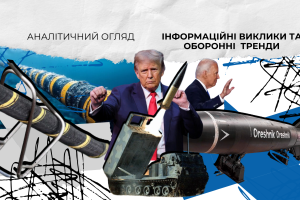
Голова напряму "Регіональна безпека та дослідження конфліктів", дослідниця Лондонської школи економіки й політичних наук
Special for European Pravda
After several months of relative calm in the negotiations on Donbas, the concentration of news has increased dramatically in recent days. First, President Zelensky states that he is ready to meet with each of the Normandy leaders separately, then Andriy Yermak announces a 'secret' plan to resolve the conflict in Donbas.
Meanwhile, Russia is doing its utmost to end the ceasefire, that is, the truce that had lasted since last summer.
What is the reason for such activity in Donbas? What is going on and what are the pitfalls?
Risky statement
Despite the fact that there is no real progress in the negotiations and no grounds for a Normandy summit either, Volodymyr Zelensky suddenly offers an alternative: he is ready to meet with each leader of the Normandy Four separately.
And the key issue here is his meeting with Vladimir Putin.
This resonant statement made by Zelensky, allegedly in passing, during a forum on culture and tourism, is imprudent at a minimum, and very risky at a maximum.
Not surprisingly, Dmitry Peskov, the press secretary of the Russian president, has already stated that he does not rule out such a possibility and hinted along the way that there has been no success so far in implementing the decisions of the current Normandy Format.
In fact, this was exactly what the Russian side wanted from the beginning—a transition to one-on-one negotiations.
First, the Russians benefit from forcing Germany and France out of the negotiation process by devaluating the Normandy Format as a negotiating platform. They have been trying to do this for a long time, and, in addition, to move the entire process to the Minsk TCG, where Russia promotes the idea that they are supposedly only a mediator, while Kyiv should conduct a dialogue with the so-called 'republics'.
Second, such statements undermine the work Ukraine has already done to reanimate the Normandy Format as such.
Consequently, it is clearly a mistake to 'throw around' statements about a possible meeting directly between Zelensky and Putin.
Russia can take advantage of this, and there will be nowhere to retreat to.
Third, not only the Kremlin but also the West can take advantage of such offers from Ukraine. Ukraine's willingness to talk directly to Russia can be used by supporters of 'conciliation' with Russia both in Berlin and in Paris.
There will be a change of power in Germany this year—Merkel is ending her political career, at least as head of government, and it is not certain that her successor will have much desire to take care of the time-consuming negotiations that have little chance of success.
Emmanuel Macron has even more reasons for striving to get rid of the Ukrainian issue. He is now preparing for the presidential election of 2022, and Ukraine's agreement on the transition to the format of negotiations with Russia could well be 'sold' to the electorate as a 'victory'.
Why is the Normandy Format important?
The advantages of the Normandy Format negotiations are specifically in avoiding being alone with the Kremlin. To have guarantees of mediators who hear the negotiations, participate in them and will not allow Russia to manipulate the agreements reached.
In the case of direct negotiations, these advantages will be gone.
That is why Ukrainian diplomats, even under Zelensky's presidency, did so much to get from informal direct negotiations back to the classic Normandy Four format.
Instead, the Kremlin tried its best to thwart this.
Foreign Minister Sergey Lavrov, in fact, refused to return to the Normandy Four format at all—the last ministerial negotiations were held a year ago, and since then the Russian Federation has refused to schedule the next round under various pretexts.
Even the meetings of political advisors (the only channel in which Russia was still interested, although sometimes also threatening to withdraw from it) have already been held de facto on a '3 + 1' formula since July 2020. The common position of Kyiv, Berlin and Paris, on the one hand, and Russia with its 'dissenting opinion' on the other, and this in itself strengthens our position.
Finally, there is a problem that Bankova will never acknowledge as a public one.
This is a problem of key negotiators from Russia and Ukraine having too different experiences. And sometimes even a lack of competence, that can cause problems.
It is worth recalling here the story with the Advisory Council, which a year ago has become a product of arrangements between Andriy Yermak and Dmitry Kozak, circumventing France and Germany. Subsequently, Kyiv realized the fallacy of those agreements and stopped them. But that story affected the trust of Western partners in the office on Bankova.
Taking all this into account, the question arises: why make such statements? And did they calculate the possible consequences on Bankova?
If it was a diplomatic maneuver without a real intention to meet, aren't the risks of this statement too high? If the explanation for such a maneuver was a public demonstration, claiming that 'we are not leaving the negotiations' in order to fend off claims in disrupting the Minsk process, then it is worth recalling that no one, except Russia, made such claims against Kyiv.
In short, so far it seems like this statement has become another evidence: Bankova's carelessness and problems with predicting the consequences of actions have not gone away yet.
However, it seems that Zelensky does not plan a real transition to one-on-one negotiations.
Unannounced 'Plan B'
Shortly after Zelensky's statement, Andriy Yermak made a statement that Ukraine, Germany and France had already developed a plan for a peaceful settlement in Donbas and are waiting for a position on this issue from Russia.
It is this formula for working on proposals for the implementation of 'Minsk' that shows that negotiations with Russia directly are hardly a real intention and priority of Ukraine. And that Bankova understands the importance of having a rear represented by Western moderators. This becomes especially important given that Ukraine is increasingly insisting that the Minsk agreements must be revised.
And although the content of the proposals developed with Western partners is still unknown, it is almost certain that Russia is unlikely to agree with it. The formula when Ukraine works together with Berlin and Paris, and Moscow only has to react to the initiatives developed without it, is simply not suitable for Russia.
And now—to the main thing. Russia's expected resistance will come as no surprise to either Kyiv or Berlin.
That is because, in fact, Ukraine has already launched the so-called 'Plan B' for Donbas.
Its central element is the renewal of the Minsk Protocol, which Kyiv has been actively insisting on for several months in a row.
In particular, it is important for Kyiv to refuse amending the Constitution. And also—the requirement that Russia first gives control over the border and only then the elections are held.
Instead, for Russia, such conditions sound like an attempt to nullify the entire schedule in negotiations with Zelensky's team. Moscow will be pushing to thwart this. And that is why we see, in fact, the end of the so-called 'regime of silence'.
Without political concessions on the part of Ukraine, 'the truce game' loses all meaning for Russia.
Because of this, unfortunately, the increase in shelling on the line of contact is not a temporary change and will not pass quickly. There is a high probability of new sabotages and provocations to cause a rebuff from the Ukrainian side, which would give the occupation forces the opportunity to open fire as if in response.
The purpose of these actions is to end the so-called regime of silence and leave negotiations in a stalemate, while positional fighting will resume on the front line.
Isn't this a too optimistic scenario? Probably, but under the current conditions without unjustified and unilateral political concessions on the part of Ukraine it is impossible otherwise.
To mitigate the consequences, the Ukrainian side is maneuvering, demonstrating a desire to find a compromise. And here it is important not to enter the minefield, which Ukraine has almost done twice in the last couple of months.
For the first time—when in the so-called Kravchuk's plan along with the right 'security first' ideas there were absolutely unrealistic terms of holding local elections on the temporarily occupied territories —four months after the beginning of demilitarization.
The second time was when President Zelensky allowed the possibility of a one-on-one meeting with Putin.
And if Russia has not yet caught the Ukrainian side making its own mistakes, this does not mean that this cannot happen in the near future.
This material was presented by Ilko Kucheriv Democratic Initiatives Foundation within the 'Engage!' Promotion of Community Action Program, funded by the United States Agency for International Development (USAID) and implemented by Pact in Ukraine. The contents of this material are the sole responsibility of Pact and its partners and do not necessarily reflect the views of the United States Agency for International Development (USAID) or the United States Government.








